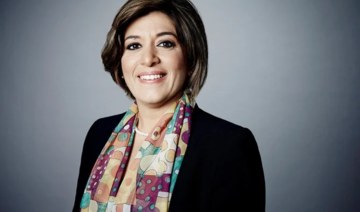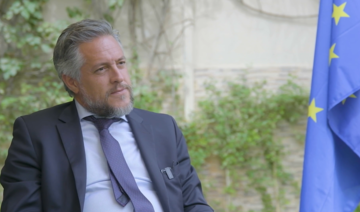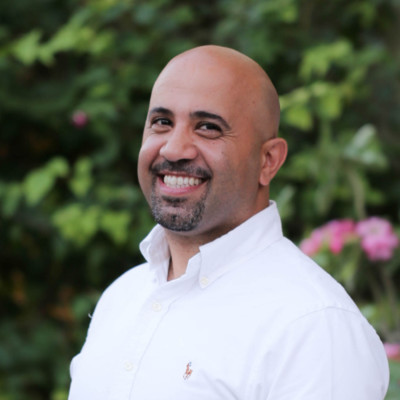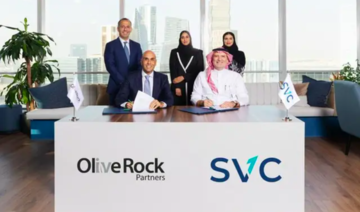The Middle East’s water challenge is summed up in one stark statistic: The region is home to 6 percent of the world’s population but has just 1 percent of its fresh water.
Rami Ghandour, managing director of global water company Metito Utilities, knows these and similar figures by heart. He can tell you how much of the population of Egypt inhabits water-intensive cities (97 percent) and how much water the Gulf Cooperation Council (GCC) region consumes per capita compared to the US (significantly more).
“I think the first thing is a realization that water is not free. It is something which is quite costly. Therefore, people need to take care of it,” he told Arab News.
Metito has been taking care of water in the region, and the world, for more than 60 years, after its foundation in Lebanon in 1958 by the serial entrepreneurial Ghandour business family whose members are still big shareholders.
It is a world-leading company in the water infrastructure sector, operating sewage, water treatment, and desalination facilities in 46 countries, and is increasingly playing a leading role in the global drive toward more renewable and sustainable use of the world’s resources.
So, is Metito a utility, or an infrastructure company, or an environmental operation?
“You can check all the boxes if you like. Historically, I’d say we were an environmental company in that what we do is desalinate water, supply water to people, treat wastewater and recycle water, both industrial and domestic. Then also more recently we’ve expanded into the renewables energy sector,” Ghandour said.
The Metito group, backed by big investors such as Mitsubishi of Japan and the investment arm of the World Bank, is organized along three business lines: A design and build unit that covers the full spectrum of the engineering, procurement, and construction process, which to date has executed more than 3,000 projects around the world; the utilities and investments division offers project finance, consulting, and management services; while the chemicals unit develops environment-friendly chemicals and specialist treatment solutions for customers.
“We maintain an arm’s length arrangement between the different companies on purpose but are able to develop projects — that is at the heart of what we do — and deliver those to people to enable both environmental improvement and also basic human development and needs,” Ghandour added.
Water — cheap, free, or subsidized — has long been taken for granted in the Middle East, even as the pressure on its supply has increased with rising population, agricultural and industrial usage. Ghandour thinks that mindset has to change.
“There are obviously jurisdictions in the region, including here in the UAE, where full market price is being charged, full cost recovery and taxes are being charged. But there are other areas where there are heavy subsidies in place and that does result in encouraging wasteful behavior,” he said.
BIO
BORN: Beirut 1975
EDUCATION
- Master’s degree in chemical engineering from the University of Cambridge
- MBA in finance and entrepreneurial management from Wharton Business School
CAREER
- Process engineer, Bechtel London
- Management consultant, Boston Consulting Group, New York
- Managing director, Metito Utilities
- Director, Metito Group
Public education programs — such as encouraging people to turn taps off and wash the car less frequently — obviously play a part in public awareness, but the bigger challenges are more structural.
For example, the biggest consumer of water in the region is not personal domestic consumption, but agriculture.
Governments — including that of Saudi Arabia — have had some success in encouraging more efficient use of water for farming, and new technologies such as hydroponics and vertical farming can also encourage optimal use of water resources.
Some countries too have taken a more radical approach, buying farmland in other parts of the world with better water supply, growing food there, and then importing it back to the Gulf.
But Ghandour pointed out that there were other simple and effective ways to optimize water efficiency. Leakage and water theft were big problems in some countries. “People are just helping themselves and there isn’t the regulation and the enforcement to make sure that it’s not a problem,” he added.
Reuse of water was also an area of great potential. The example here was Singapore, which has made great strides toward reusing water in the domestic, industrial, and agricultural sectors.
In the Gulf, one of the sights that sets environmentalists’ nerves on edge was the liberal use of precious water on golf courses or green public spaces, in areas that would naturally be arid desert.
However, Ghandour noted that an increasing proportion of that was recycled water that may not be fit for human consumption, but which was perfectly acceptable for irrigation. Dubai, for example, has a groundbreaking wastewater recycling facility which offers users two taps for different water uses.
Metito is bidding in a project in Botswana in Africa where wastewater is directly recycled back into the consumption and drinking water systems, one of only two in the world that does that.
The company was also looking at the technology behind a pioneering project in California which recycles wastewater directly into the underground aquifers that feed water back into the consumption cycle.
But even if the region optimizes its usage, prevents leakages, and adopts efficient pricing mechanisms, there will always be a need for desalination in a part of the world as arid as the Arabian Gulf.
Desalination has been the mainstay of the basic infrastructure that has allowed the region to enjoy high rates of economic growth over decades, but it has also come under fire from environmentalists, for two reasons: The use of carbon fuels such as oil and gas in the expensive process of turning sea water into usable water; and the extra brine — salty water — expelled into the sea as a by-product.
Ghandour said the second objection was less of a significant factor, pointing out that the Arabian Gulf and Red Sea were open tidal seaways, and also that some desalination facilities in the UAE have been built on the Indian Ocean side of the country, allowing brine to disperse into a wider body of water.
The use of hydrocarbon fossil fuels to produce water was a different matter.
“I would decouple the power issue from the desalination. The good news is that the renewables business model has become much more competitive. Renewable power today is often below the cost of fossil fuels power,” he added.
The megaprojects of Saudi Arabia were the perfect testing ground for this new model. Metito is involved in two solar-powered desalination facilities in the NEOM development, which mix renewable power with sources from the national grid, and it has also won a contract for a huge desalination plant in the industrial zone at Jubail in the Eastern Province. Ghandour hinted that other big Saudi contracts were in the offing.
There are also huge Metito projects on the other side of the Red Sea, in Egypt, including an ambitious plan to irrigate the Sinai desert with treated water pumped under the Suez Canal.
Saudi Arabia’s need for clean, efficient, and reusable water was likely to increase exponentially over the next decade. For example, in addition to the megaprojects such as NEOM and Qiddiya outside Riyadh, there are massive plans to double the size of the Saudi capital by 2030, as well as an initiative to plant 10 billion trees in the Kingdom to help mitigate carbon emissions. Does Ghandour think these ambitious plans are feasible, from the viewpoint of a water expert?
He noted that the way Saudi Arabia and other Gulf countries had gone about the task was encouraging, with increasing private sector investment. “I would argue that is typically the most efficient way to deliver these projects with very strong environmental compliance standards in place,” he said, with one eye on the higher standards now required by international private sector investors in line with ESG (environmental, social, and governance) standards.
“It has put everybody in the mindset of the ESG priorities that are there, so everybody is looking at doing projects in a manner that is sustainable, and definitely the Saudis have been very much involved in that,” he added.
And does he think the Kingdom will have the capacity to water all those trees?
“I don’t have the specifics on the plan to irrigate those trees, but I’m sure as an outsider I would say yes. Additional desalination capacity is being implemented at a high rate with these public private partnership projects.
“So, additional sources of water are there, and I go back to the wastewater that can be reused, which is perfect for irrigating trees. There is today a lot of wastewater that is effectively thrown away in the Kingdom. So, it’s something where reuse would be of a significant environmental benefit,” he said.

























